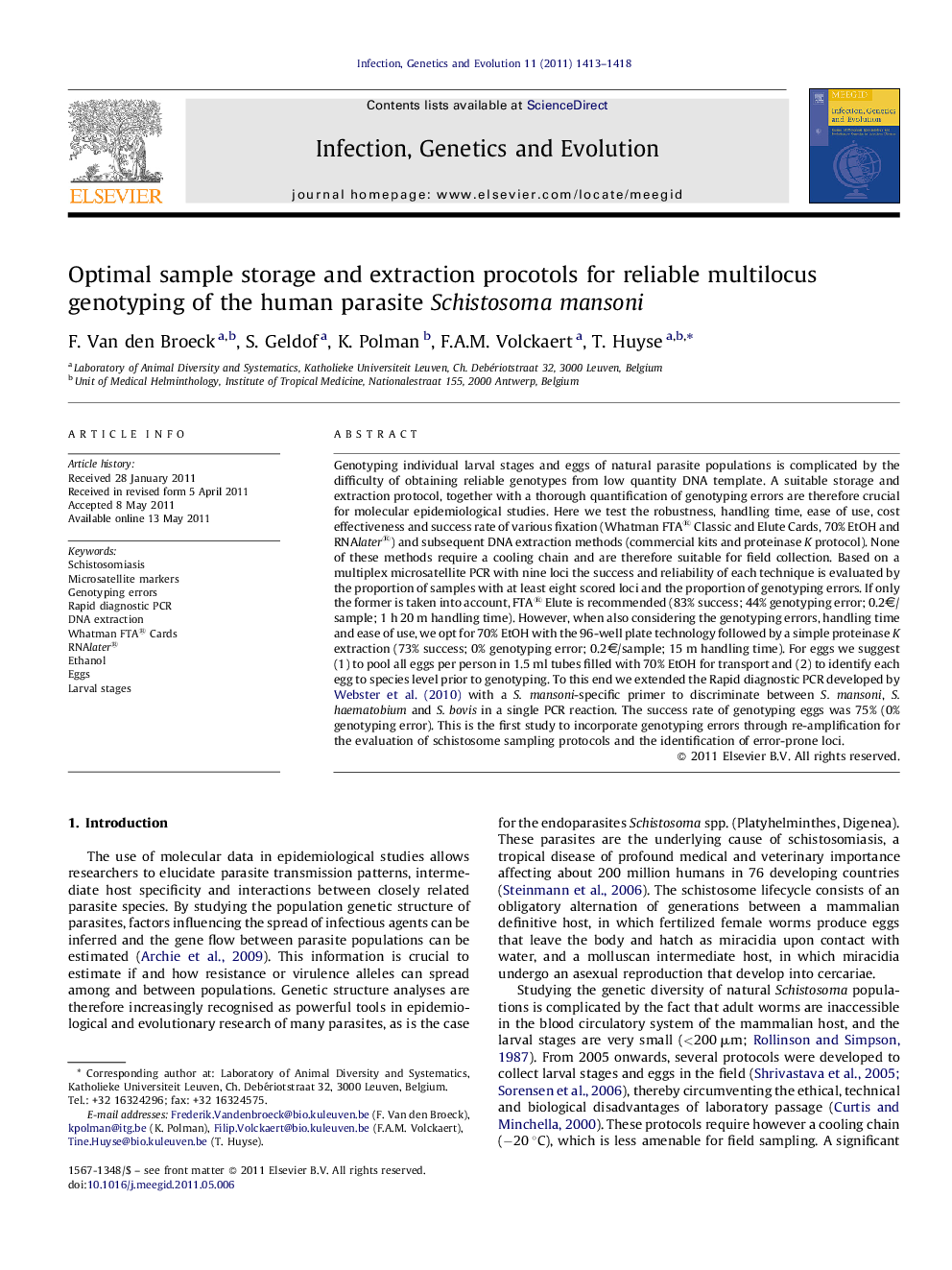| Article ID | Journal | Published Year | Pages | File Type |
|---|---|---|---|---|
| 5911801 | Infection, Genetics and Evolution | 2011 | 6 Pages |
Genotyping individual larval stages and eggs of natural parasite populations is complicated by the difficulty of obtaining reliable genotypes from low quantity DNA template. A suitable storage and extraction protocol, together with a thorough quantification of genotyping errors are therefore crucial for molecular epidemiological studies. Here we test the robustness, handling time, ease of use, cost effectiveness and success rate of various fixation (Whatman FTA® Classic and Elute Cards, 70% EtOH and RNAlater®) and subsequent DNA extraction methods (commercial kits and proteinase K protocol). None of these methods require a cooling chain and are therefore suitable for field collection. Based on a multiplex microsatellite PCR with nine loci the success and reliability of each technique is evaluated by the proportion of samples with at least eight scored loci and the proportion of genotyping errors. If only the former is taken into account, FTA® Elute is recommended (83% success; 44% genotyping error; 0.2â¬/sample; 1 h 20 m handling time). However, when also considering the genotyping errors, handling time and ease of use, we opt for 70% EtOH with the 96-well plate technology followed by a simple proteinase K extraction (73% success; 0% genotyping error; 0.2â¬/sample; 15 m handling time). For eggs we suggest (1) to pool all eggs per person in 1.5 ml tubes filled with 70% EtOH for transport and (2) to identify each egg to species level prior to genotyping. To this end we extended the Rapid diagnostic PCR developed by Webster et al. (2010) with a S. mansoni-specific primer to discriminate between S. mansoni, S. haematobium and S. bovis in a single PCR reaction. The success rate of genotyping eggs was 75% (0% genotyping error). This is the first study to incorporate genotyping errors through re-amplification for the evaluation of schistosome sampling protocols and the identification of error-prone loci.
⺠This is the first study for schistosomes that evaluates microsatellite loci and extraction protocols by the quantification of genotyping errors. ⺠Special attention has been paid to the processing of eggs and species diagnosis with an extended diagnostic PCR. ⺠Most reliable, time and cost-effective strategy is collection in 96-well plates with 70% ethanol followed by proteinase K extraction.
